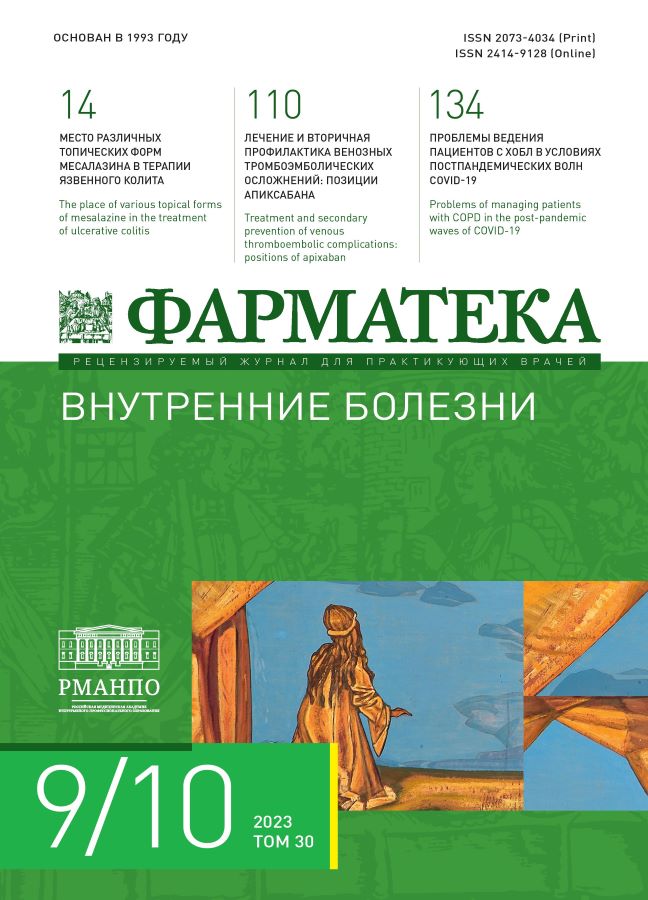Concealment and denial of diagnosis in amyotrophic lateral sclerosis
- Authors: Levitsky G.N.1,2, Berdalin A.B.3, Kovrazhkina E.A.4, Sanadze A.G.4, Shestachenko V.V.2, Vidergoldt O.V.1,2
-
Affiliations:
- Nina Levitskaya Russian Charity ALS Foundation
- LLC Gleb Levitsky Clinic with Private ALS Center
- Federal Center for Brain and Neurotechnologies FMBA of Russia
- Moscow Myasthenic Center
- Issue: Vol 30, No 9/10 (2023)
- Pages: 151-158
- Section: Rheumatology
- Published: 25.09.2023
- URL: https://journals.eco-vector.com/2073-4034/article/view/624928
- DOI: https://doi.org/10.18565/pharmateca.2023.9-10.151-158
- ID: 624928
Cite item
Abstract
Background. Denial of diagnosis is a problem well covered in the literature; concealment of diagnosis by relatives from patients is a problem of the past than the present in modern medical practice, nevertheless it occurs.
Objective. Clarification of the relationship between the phenomena of concealment and denial of the ALS diagnosis, combined into a common group on the basis of inadequate information about the diagnosis.
Methods. Analysis of a sample of 103 ALS patients with revealed denial of the diagnosis in 6.8% of cases, and concealment of the diagnosis also in 6.8% of cases.
Results. The group of ordinary patients and the combined group of patients with the phenomena of concealment and denial of diagnosis did not differ in demographic and clinical characteristics. The influence of these phenomena on the life expectancy of patients could not be established, because patients with these phenomena were not followed-up. Clinical examples of these phenomena are presented.
Conclusion. The participation of a clinical psychologist in the managment of such patients is recommended.
Full Text
About the authors
G. N. Levitsky
Nina Levitskaya Russian Charity ALS Foundation; LLC Gleb Levitsky Clinic with Private ALS Center
Author for correspondence.
Email: alsrus@gmail.com
ORCID iD: 0000-0001-9321-913X
Russian Federation, Moscow; Moscow
A. B. Berdalin
Federal Center for Brain and Neurotechnologies FMBA of Russia
Email: alsrus@gmail.com
ORCID iD: 0000-0001-5387-4367
Russian Federation, Moscow
E. A. Kovrazhkina
Moscow Myasthenic Center
Email: alsrus@gmail.com
ORCID iD: 0000-0002-2898-8968
Russian Federation, Moscow
A. G. Sanadze
Moscow Myasthenic Center
Email: alsrus@gmail.com
ORCID iD: 0000-0002-9882-3149
Russian Federation, Moscow
V. V. Shestachenko
LLC Gleb Levitsky Clinic with Private ALS Center
Email: alsrus@gmail.com
Russian Federation, Moscow
O. V. Vidergoldt
Nina Levitskaya Russian Charity ALS Foundation; LLC Gleb Levitsky Clinic with Private ALS Center
Email: alsrus@gmail.com
Russian Federation, Moscow; Moscow
References
- Goldbeck R. Denial in physical illness. J Psuchosomat Res. 1997;43(6):575–93. doi: 10.1016/s0022-3999(97)00168-2.
- Wielgosz A.T., Nolan R.P., Earp J.A., et al. Reasons for patients’ delay in response to symptoms of acute myocardial infarction. CMAJ. 1988;139(9):853–57.
- Fricchione G.L., Howanitz E.L., Jandorf L., et al. Psychological adjustment to end-stage renal disease and the implications of denial. Psychosomat. 1992;33(1):85–91. doi: 10.1016/S0033-3182(92)72025-8.
- Derouesne C. Unawareness of brain disordersis a complex and multifaceted phenomenon. Psychol. Neuropsych. Vieil. 2009;7(4):243–51. doi: 10.1684/pnv.2009.0186.
- Tan C.W.Y., Xu Y., Lee J.Y., Severe distress denial among Asian patients with Type 2 Diabetes Mellitus in the primary care: A prospective, multicentre study. Diab Res Clin Pract. 2023;197:110574. doi: 10.1016/j.diabres.2023.110574.
- Di Giuseppe M., et al. Defense mechanisms in cancer patients: a systematic review. J Psychosom Res. 2018;115:76–86. doi: 10.1016/j.jpsychores.2018.10.016.
- Mingrone C., Rocca P., Castagna F., et al. Insight in stable schizophrenia: relations with psychopathology and cognition. Compr Psychiatry. 2013;54(5):484–92. doi: 10.1016/j.comppsych.2012.12.014.
- Kogan N.R., Dumas M., Robin Cohen S. The extra burdens patients in denial impose on their family caregivers. Palliat Supp Care. 2013;11(2):91–9. doi: 10.1017/S1478951512000491.
- Rossi Ferrari S., Giorgi I., Baiardi P., et al. Illness denial questionnaire for patients and caregivers. Neuropsych. Dis Treat. 2017;13:909–16. doi: 10.2147/NDT.S128622.
- Lazarus J. Passion. J Emedg Nurs. 2019;39(3):215. doi: 10.1016/j.jen.2013.04.001.
- Cage J., Kiernan M.C., Pisuet O. A systematic review on caregiver coping strategies in ALS/FTD. Geriatr Psych Neurol. 2022;35(16):763–77. doi: 10.1177/08919887211060016. URL: https://ru.wikipedia.org/wiki/%D0%A1%D0%BE%D0%BB%D0%BE%D0%BD%D0%B8%D1%86%D1%8B%D0%BD,_%D0%90%D0%BD%D0%B0%D1%82%D0%BE%D0%BB%D0%B8%D0%B9_%D0%90%D0%BB%D0%B5%D0%BA%D1%81%D0%B5%D0%B5%D0%B2%D0%B8%D1%87.
- Kever A., Kiley C.S., Leavitt N.M. Diagnosis concealment is associated with psychological outcomes in persons with multiple sclerosis. Mult Scler. 2022;28(8):1311–14. doi: 10.1177/13524585211070496.
- Friedlander A., Nazem S., Fiske A., et al. Self-concealment and suicidal behavior. Suicide Life Threat. Behav. 2012;42(3):332–40. doi: 10.1111/j.1943-278X.2012.00094.x.
- Benatar M., Stanislaw C., Reyes E. Presymptomatic ALS genetic counseling and testing: Experience and recommendations. Neurology. 2016;86(24):2295–302. doi: 10.1212/WNL.0000000000002773.
- Jeppesen B.B. Is Haven a better place? Dafolo A/S Friederikshavn, 1999.
- Snaedal J. The Helsinki Declaration. Laeknabladid. 2014;100(3):135.
- Ciechoski M.A. Coping with change. Manual 2. The International Alliance of ALS/MND Associations. 2007. 32 р.
- Talbot K., Turner M.R., Mersden R., Botell R. Motor neuron disease. A practical manual. Oxford University Press, 2010. Р. 1–214.
- Nodera H., Izumi Y., Kaji R. New diagnostic criteria of ALS (Awaji criteria) Brain Nerve. 2007;59(10):1023–29.
- Cedarbaum J.M., Stambler N., Malta E., et al. The ALS-FRS-R: a revised ALS functional rating scale that incorporates assessment of respiratory function. BDNF ALS Study Group (phase III). J Neurol Sci. 1999;169:13–21. doi: 10.1016/s0022-510x(99)00210-5.
- Nasreddine M.D., et al. Montreal cognitive assessment. 2004. www.mocatest.org
- Sim M., Reid D., Pallett J., Gordon E. The Hamilton rating scale. An assessment bases on a dothiepin («prothiaden») versus imipramine («Tofranil») clinical trial. Int Pharmacopsych. 1975;10(3):142–48. doi: 10.1159/000468184.
- Fullan T., Stephers H.L., Feglosi S.H., et al. Compliance with recommendations made in a multidisciplinary ALS team. Amyotroph Later Scler Frontotemporal Degener. 2015;17(1–2):30–7. doi: 10.3109/21678421.2015. 1074703.










